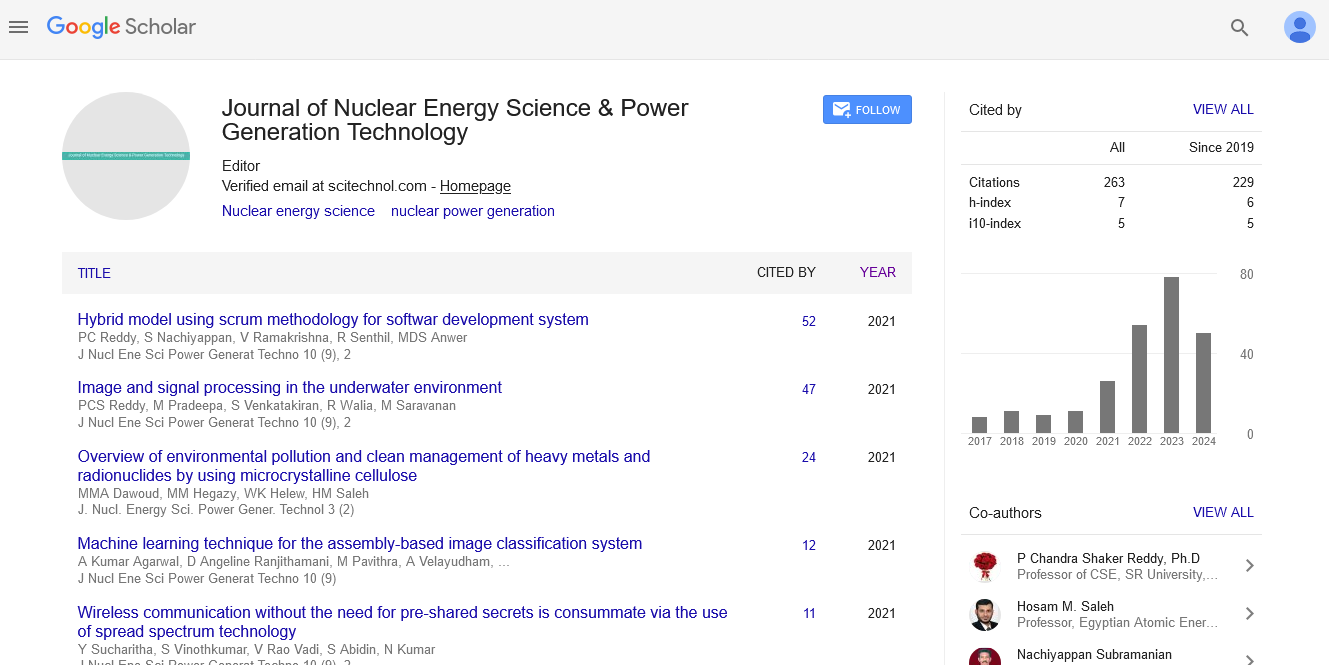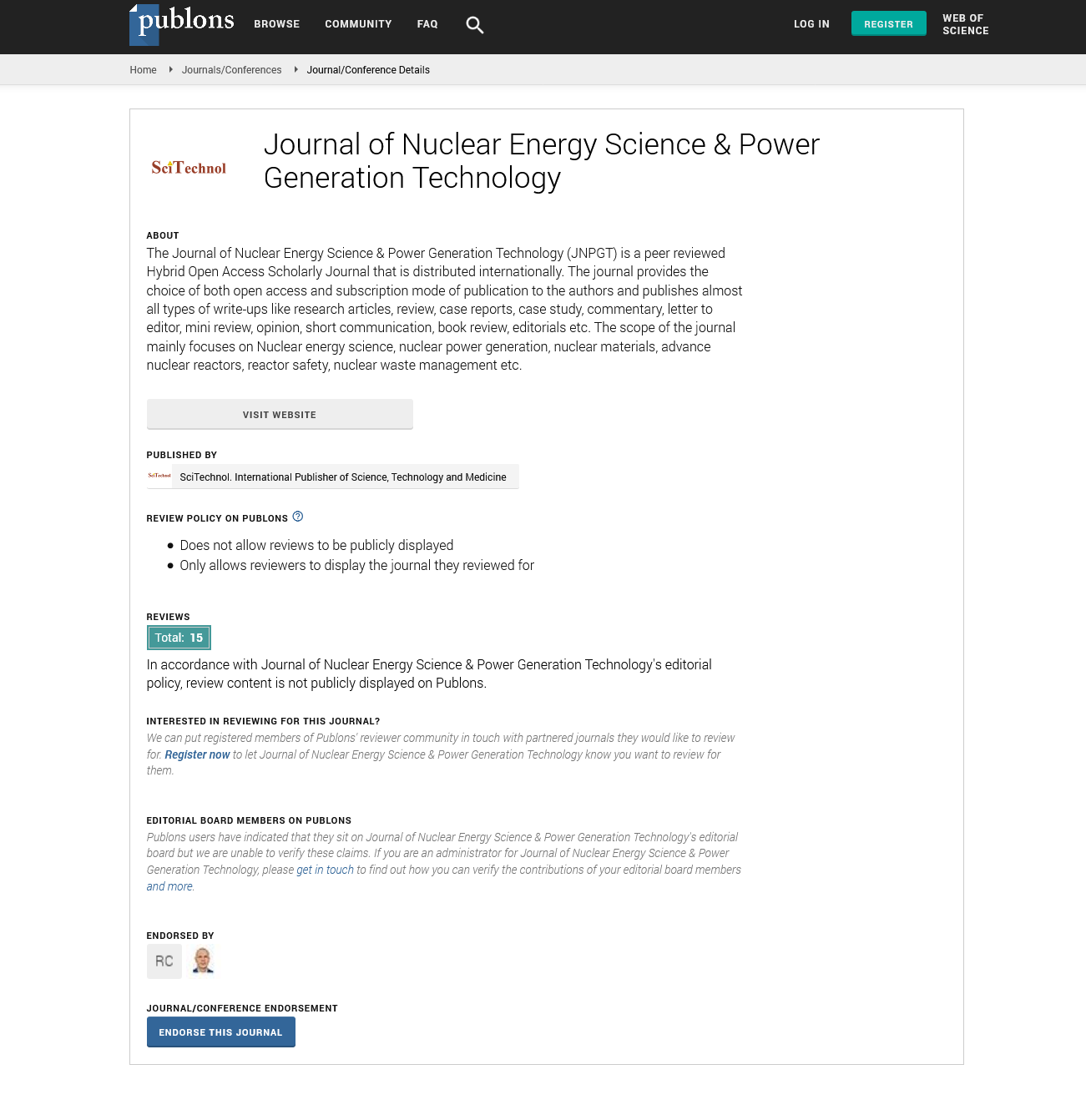Study on combustion of sewage sludge solid fuel alternative to coal for sustainable energy future
Hyung Taek Kim
Ajou University, Korea
: J Nucl Ene Sci Power Generat Technol
Abstract
The 21st 2015 United Nations Climate Change Conference was held in Paris, France. The 21 Conference of Parties (COP21) signed the Paris Climate Accord to reduce the greenhouse gas emission. The Rep. of Korea (South Korea) aims to lower the business as usual (BAU) emission rate by 37%. Therefore the rate of coal energy dependency is decreasing whereas the mandatory supply ratio of the renewable energy is on the rise. The sewage sludge solid fuel is also considered within the realm of renewable energy. In contrast to coal, the sewage sludge contains larger quantities of P2O5. The P2O5 is commonly known as a substance that significantly impacts fouling and slagging. However, there is lack of literature that supports the correlation between P2O5 and the generation of fouling mechanism. Phosphorus has a low melting point of 340 Celsius degrees while being sublimated at the same time. Additionally, phosphorus is highly absorbent and creates phosphoric acid by the water reaction depending on the temperature. The phosphoric acid easily reacts with inorganic substances within the sewage sludge solid fuel which creates new compounds under even lower melting points. To examine this chemical reaction, the researcher has conducted several synthetic experiments by combining inorganic matter [CaO, MgO, Al2O3, Fe2O3, SiO2] within the sewage sludge solid fuel with phosphorus [P2O5]. The researcher measured the degree of agglomeration with Sieve Shaker. Under the XRD analysis, the experiment confirmed the compound production of Ca3Mg3(PO4)4, Ca3(PO4)2, Mg3(PO4)2, AlPO4, FePO4, etc. Additionally, the researcher conducted Drop Tube Furnace experiment using sewage sludge solid fuel to examine the fouling problem during the combustion situation. The result suggests a positive correlation between the high phosphorus in sewage sludge solid fuel and the fouling rate based on the DTF experiment.
Biography
Hyung Taek Kim has completed his Ph.D. at the age of 32 years from Pennsylvania University. He is professor of Ajou Uninversity and adjunct professor of East China University of Science and Technolohy. He is also director of Korea Society of Energy&Climate Change and Korean Coal Gasification Association. He has published more than 25 papers in reputed journals.
E-mail: htkim@ajou.ac.kr
 Spanish
Spanish  Chinese
Chinese  Russian
Russian  German
German  French
French  Japanese
Japanese  Portuguese
Portuguese  Hindi
Hindi 

